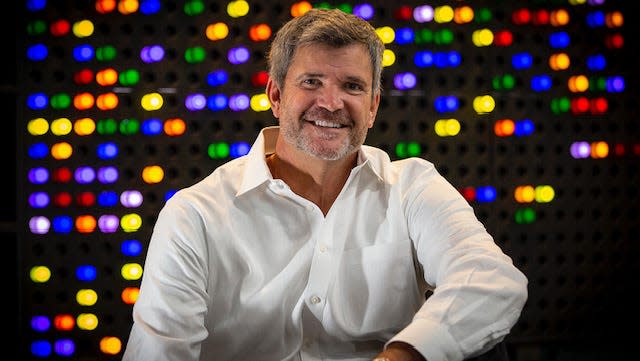Reading to your kids at an early age sets them on a path to success | Opinion
Frequently reading to your children at an early age sets them up for a future of successful learning. Early learning experiences are responsible for building and refining the brain architecture that supports intelligence.
It isn’t hard to develop family habits that create an enriched early learning life capable of building brain architecture. A few ideas for us to consider would be reading to children early and often, having ongoing conversations about the objects and events children see in the world around them daily, and making a playful game out of learning.
Here are the most important research findings that are easiest to use to increase children’s learning potential.
Hear more Tennessee Voices:Get the weekly opinion newsletter for insightful and thought provoking columns.
Read to your children daily. As soon as your child is old enough to hold his or her head up and look at the pictures in a book, start reading to your child daily. Researchers have found that the earlier and more often you read aloud to young children, the earlier they start reading. Reading aloud also increases the chances of their long-term reading and school success. Books with wonderful illustrations, rhyming text, and basic academic concepts (like shapes, colors, the alphabet, letter sounds, numbers, and counting) are best to use when starting. When you feel your child is ready, ask a couple of questions about the story. If the child is too young to answer, answer the question for them for the benefit of creating a rich and descriptive language environment. As he or she becomes more verbal, start asking questions that require fuller answers.
Learn letter sounds and start creating words early. Once a child can identify letters and match letters to their sounds, then he or she should start listening for and identifying beginning consonant sounds in words. Studies show that early knowledge of letters and their sounds strongly correlates with the onset of reading. Start pointing out letters and letter sounds in the books you read together, on street signs and billboards, and during shopping. Make a game of coming up with the sounds for letters and help children sound out and “build” simple three-letter CVC (consonant-vowel-consonant) words like dog and log. If you are not sure where to start, try the letters and sounds in your children’s first names. Our names are important, and it is easier to learn and remember things we care about.
Read books with rhymes. Don’t forget the power of rhyming when helping young children recognize beginning, middle, and ending sounds. Regularly read the Dr. Seuss classic, “Hop On Pop.” It is 38 pages full of fun rhyming words practically guaranteed to engage your children’s ability to find patterns in the structure of the words they will need to read and write.
Sign up for Latino Tennessee Voices newsletter:Read compelling stories for and with the Latino community in Tennessee.
Create a rich language environment. In addition to promoting an enriched early literacy environment with plenty of reading aloud, the language environment of young children (from birth to age six) is highly correlated with long-term language and I.Q. scores as well as school performance. Having a rich language environment is one of the strongest single predictors of overall literacy and intellectual development. This includes having a habit of talking with your children in a kind tone, asking them questions, and modeling descriptive language about the world they see around them. By the time children leave second grade, having a large vocabulary (a large number of words your children have heard and understand) is a significant link to academic achievement.

Make fun learning games and pretend play a priority. Start and maintain ongoing, short, and playful interactions with your children. Play I Spy and make up stories together with colorful characters and silly endings that make your children laugh. Adding a little pretend play while learning has been correlated with significant increases in language and I.Q. scores. Playful learning activities shows the importance of learning in your household, gives a fun turbo-boost to children’s learning, and brings you and your child closer together.
Sign up for Black Tennessee Voices newsletter:Read compelling columns by Black writers from across Tennessee.
If you haven’t started implementing these strategies, don’t feel guilty! Children are amazingly flexible learners, and every little bit of enrichment counts. Frequent, brief, fun learning experiences can do significant work in developing a healthy love of learning and a strong foundation of knowledge and life skills for your children.
Stewart Burgess is a developmental psychologist and CEO of the Children’s Museum of Memphis
This article originally appeared on Nashville Tennessean: How reading to your kids at an early age leads them to a bright future

